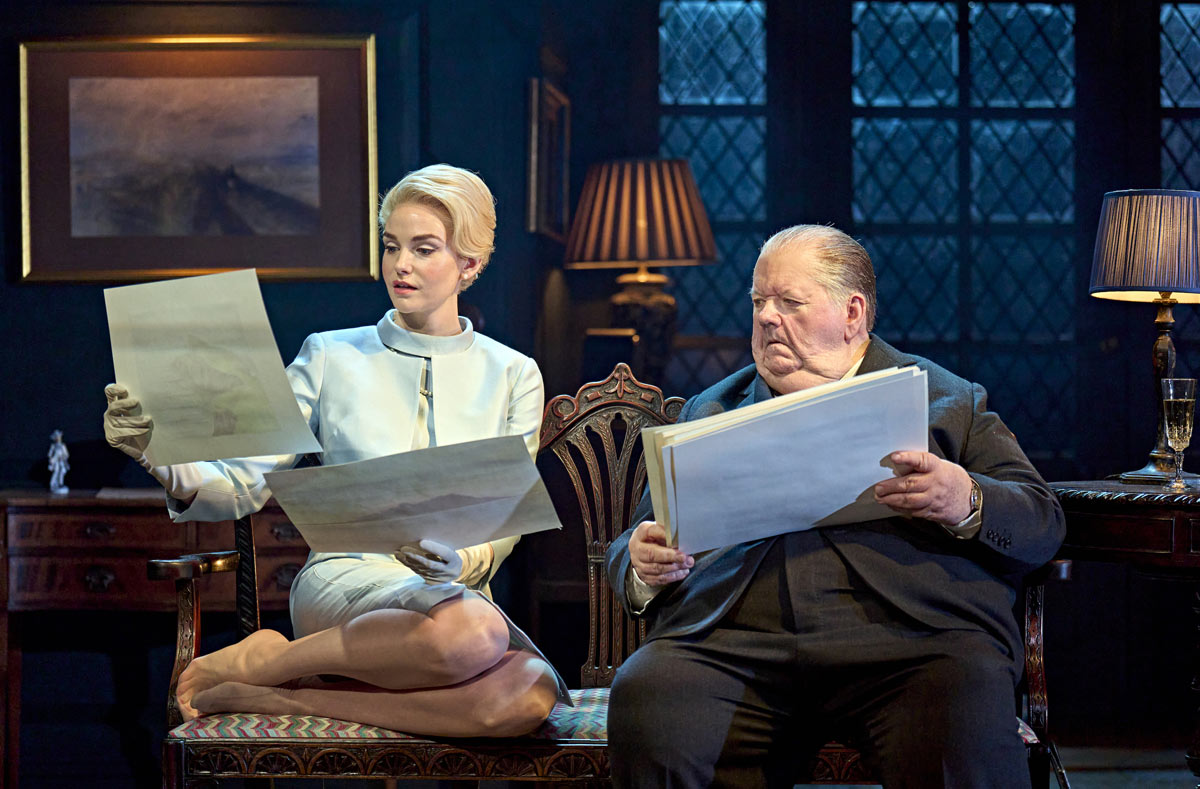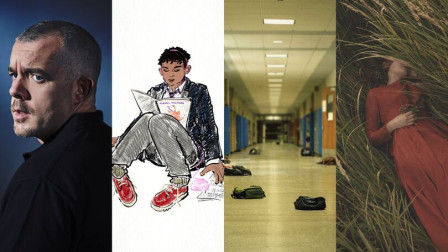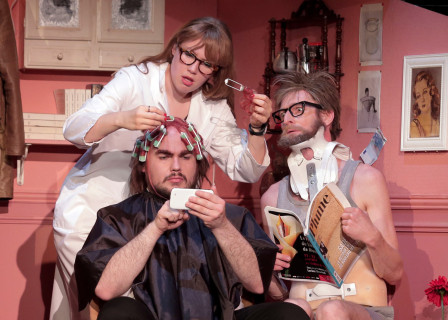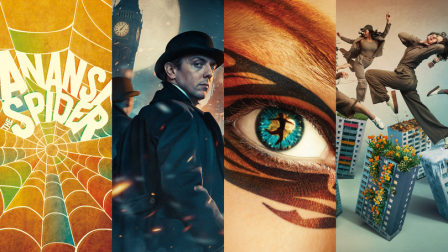Review: DOUBLE FEATURE at Hampstead Theatre
John Logan is an experienced American playwright whose screen credits include Gladiator, The Aviator and Skyfall. His previous plays include Peter and Alice, and Red, so it was with a sense of excited anticipation that this reviewer headed to Hampstead Theatre for the press night of DOUBLE FEATURE.
 Joanna Vanderham as Tippi Hedren and Ian Mcneice as Alfred Hitchcock in Double Feature. Credit Manuel Harlan
Joanna Vanderham as Tippi Hedren and Ian Mcneice as Alfred Hitchcock in Double Feature. Credit Manuel Harlan
Whilst distinct from one another, both of Double Feature’s theatrical offerings are set in the 1960s and deal with behind-the-scenes power interplay between film director and star. Played on a single set, we’re transported to both 1964 Los Angeles and Alfred Hitchcock’s Universal Studios back-lot home where he is struggling to elicit a performance from his leading lady Tippi Hedren. She is the beautiful fashion model whom he had discovered after she had appeared in a television commercial and of whom he had made a star in The Birds. His infatuation writ large, there is a suffocating persistence in his controlling behaviour and requirement that she rehearse with him in private, over dinner due to the stipulations in her contract. Marnie, the movie version of Winston Graham’s psychological drama on which they are working, plays into the lurid and possessive demands the director makes of his beautiful star as she politely struggles to rebuff his manipulative influence. This is most definitely a very long time before the #MeToo movement.
The second piece also neatly played on the same set and at the same time, takes place in 1967 at the Suffolk cottage rented to house actor and director during filming of a low-budget horror movie starring Vincent Price being made by a promising young English director Michael Reeves (who was to die a few months after filming concluded at the age of 25, from an accidental overdose from alcohol and barbiturates). Reeves’ original wish to have Donald Pleasance take the lead role in the Witchfinder General was overruled by the producers and the play explores the fractious relationship between Reeves and Price, with the former continually demanding the actor tone down his overtly campy delivery.
The theatrical device of freezing two actors while the other pair play-out their scene on the same stage (often mere elbows from one another), is hardly original but here proves effective and for the most part successful in director Jonathan Kent’s layered production played out on Anthony Ward’s entirely appropriate traditional set.
Of the players, Joanna Vanderham as Tippi Hedren exuded the impossible awkwardness of a woman trapped and enduring the unwanted and manipulative attentions of a man with power, whilst Ian McNeice as Hitchcock lacked the powerful rumbustious generally associated with the director. Of the other pairing, Jonathan Hyde’s restrained hamminess as Vincent Price cried-out for more of the distinctive voice and affectation to sell the idea that his young nemesis was a mismatch. Rowan Polonski as the tragic young director Michael Reeves perhaps shines brightest - especially in the moment he explains and explores the fearful visions which haunt his view of reality, cringing at the mantelpiece until Price finally understands the power and effectiveness of his directorial note.
Latest News

 Further cast announced for UK and Ireland tour of Annie
29 January 2026 at 15:10
Further cast announced for UK and Ireland tour of Annie
29 January 2026 at 15:10

 The Donmar Warehouse announces programme for 2026
29 January 2026 at 14:30
The Donmar Warehouse announces programme for 2026
29 January 2026 at 14:30

 Review: FISH BOWL at Peacock Theatre
29 January 2026 at 13:58
Review: FISH BOWL at Peacock Theatre
29 January 2026 at 13:58

 Regent's Park Open Air Theatre announces 2026 season
29 January 2026 at 10:34
Regent's Park Open Air Theatre announces 2026 season
29 January 2026 at 10:34